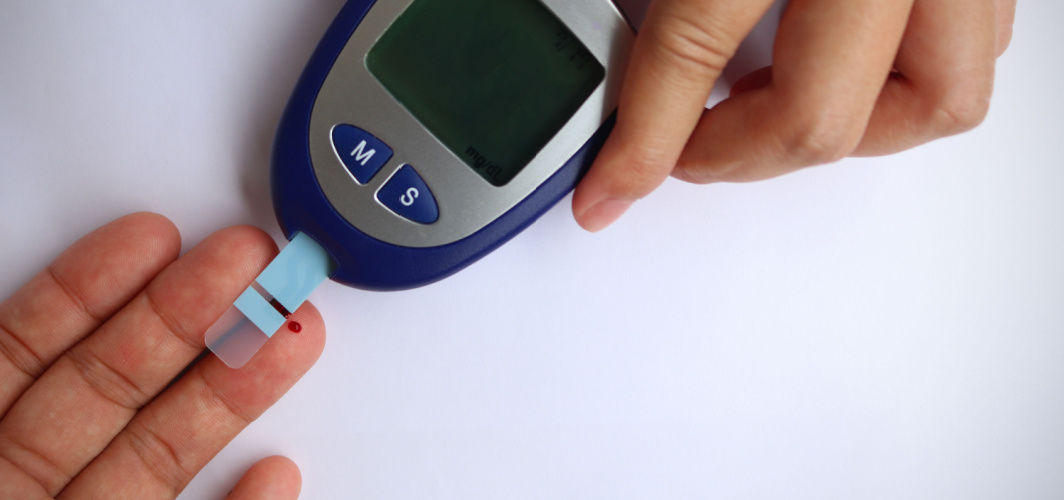Diabetes Management
Impact of Diabetes on Sexual Wellness in Women
2 min read
By Apollo 24|7, Published on - 02 April 2024, Updated on - 08 April 2024
Share this article
0
0 like
.jpg?tr=q-80)
Did you know that diabetes can extend its impact beyond blood sugar levels, affecting your intimate life as well? Sexual wellness, often shrouded in silence, is crucial to overall well-being.
However, for women living with diabetes, navigating sexual health can sometimes feel like an additional challenge. Studies suggest a higher prevalence of sexual dysfunction in women with diabetes, which is concerning.
Here's the good news: sexual health and diabetes can be effectively managed together. Let's delve into the complexities of this topic and explore ways to keep the spark alive.
Challenges Faced
Vaginal Dryness: High blood sugar can affect blood flow to the vagina, which in turn leads to reduced lubricating secretions and dryness leading to discomfort during sex.
Reduced Sensation: Nerve damage, a potential complication of diabetes, which can decrease genital sensitivity and make it harder to reach orgasm.
Low Libido & Psychological Impact: Living with diabetes can be emotionally taxing, often accompanied by hormonal imbalances and stress, both of which can dampen intimacy desires. The strain of managing the condition can lead to stress, anxiety, and depression, negatively impacting sexual satisfaction and performance. These factors intertwine, affecting desire, arousal, and orgasm, emphasizing the intricate relationship between physical health and emotional well-being in diabetes management.
Recurring Infections: Women with diabetes are at Increased susceptibility to Urinary Tract Infections (UTIs) and Vaginal Yeast Infections, which in turn may lead to painful sex.
Prevention and Care Techniques
Prioritise Diabetes Management: Consistently track blood sugar levels, adhering to medications, and a healthy lifestyle with balanced nutrition and regular exercise. Stable blood sugar levels are crucial for minimizing the risk of complications affecting sexual health.
Seek Professional Guidance: Seeking help from qualified therapists or counselors specializing in sexual health for persistent sexual difficulties. Personalized strategies can effectively address concerns and enhance sexual well-being.
Foster Communication: Cultivate open dialogue with healthcare providers, including physicians and gynecologists, to address any concerns regarding sexual health.
Prioritize Self-Care: Combat stress and anxiety, which can exacerbate sexual issues, by dedicating time to activities like meditation, yoga, or nature walks. Prioritizing self-care enhances overall well-being and sexual health.
Embrace Alternative Intimacy: Beyond sexual intercourse, nurture emotional connection and intimacy with your partner through sensual touch and meaningful communication. Exploring alternative forms of intimacy strengthens the bond between partners.
Explore Lubricants: Incorporating water-based lubricants can enhance comfort and alleviate vaginal dryness during sexual activity. Opt for long-lasting options compatible with condoms for added safety.
Conclusion
Remember, you're not alone; uncontrolled diabetes can affect sexual wellness in many. You can overcome these challenges by prioritizing diabetes management, open communication with your doctor, and self-care practices. Explore ways to connect with your partner, and remember, a fulfilling, intimate life is still possible with diabetes. There are resources available to support you on this journey—don't hesitate to reach out for help.
Diabetes Management
Consult Top Diabetologists
View AllLeave Comment
Recommended for you

Diabetes Management
Having a Diabetic Parent Can Increase Your Risk by 30%: Study
A recent study highlights a 30% increased risk of diabetes when one parent is affected. This means that genes play a significant role in deciding whether an individual will inherit the condition or not. However, environmental factors and lifestyle choices such as a balanced diet and regular exercise can mitigate this risk. Early detection through health check-ups and educational initiatives promoting proactive health measures are essential for those with a family history of diabetes.

Diabetes Management
Balancing Blood Sugar: Postpartum Care for Diabetic Mothers
Postpartum diabetes care is paramount for a healthy transition into motherhood. Effective management necessitates a team effort with healthcare professionals, understanding insulin sensitivity fluctuations, recognising the impact of gestational diabetes, and embracing a structured approach to care.

Diabetes Management
The Vital Nutrients and Their Connection to Diabetes
Deficiencies in certain nutrients like vitamins A, C, D, E, and B vitamins can contribute to the onset and progression of diabetes. Ensuring an adequate intake of these nutrients through a well-balanced diet can assist in better glycemic control.
Subscribe
Sign up for our free Health Library Daily Newsletter
Get doctor-approved health tips, news, and more.
Visual Stories

8 Fruits That are Incredibly Healthy for Diabetes
Tap to continue exploring
Recommended for you

Diabetes Management
Having a Diabetic Parent Can Increase Your Risk by 30%: Study
A recent study highlights a 30% increased risk of diabetes when one parent is affected. This means that genes play a significant role in deciding whether an individual will inherit the condition or not. However, environmental factors and lifestyle choices such as a balanced diet and regular exercise can mitigate this risk. Early detection through health check-ups and educational initiatives promoting proactive health measures are essential for those with a family history of diabetes.

Diabetes Management
Balancing Blood Sugar: Postpartum Care for Diabetic Mothers
Postpartum diabetes care is paramount for a healthy transition into motherhood. Effective management necessitates a team effort with healthcare professionals, understanding insulin sensitivity fluctuations, recognising the impact of gestational diabetes, and embracing a structured approach to care.

Diabetes Management
The Vital Nutrients and Their Connection to Diabetes
Deficiencies in certain nutrients like vitamins A, C, D, E, and B vitamins can contribute to the onset and progression of diabetes. Ensuring an adequate intake of these nutrients through a well-balanced diet can assist in better glycemic control.

